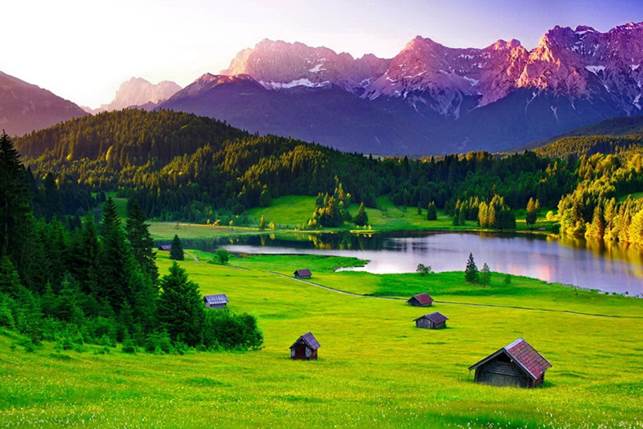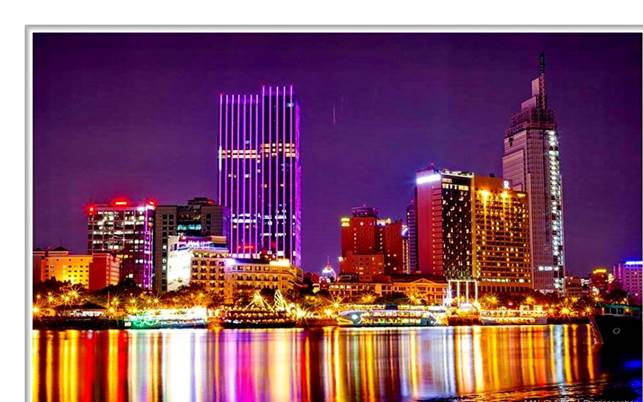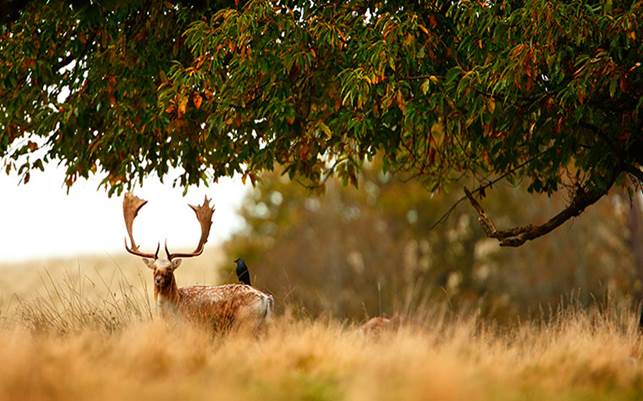Patterns, reflections and details
There
are many ways to use composition creatively. When we slow down to contemplate
lines, curves and patterns, we see how they interact with color. Col- or allows
your eye to rest on the patterns of nature. Patterns are everywhere—they can be
found in the smallest of subjects or in a large expanse of landscape. Look for
pleasing repetition of shape (or color) and dynamic spacing of elements within
your scene. Patterns lead the eye through the frame. By filling the frame with
repetitive patterns, you’re able to give the impression of size and scale.
Another use of pattern is to break the pattern, or capture the interruption of
the flow. Do this by finding a
contrasting color in a sea of similarity. Always con- sider focal point and the
Rule of Thirds while playing with patterns in nature.

Patterns are everywhere—they can be
found in the smallest of subjects or in a large expanse of landscape
A
great way to show the relationship of color to its surrounding environment is
through reflection. Reflections enhance dramatic effect. You can combine your vision
and artistic eye with the natural elements of the season to achieve visually
stunning images. When shooting reflections, think about the angle of the light and
how it affects the reflection. Explore different viewpoints that make the
reflection most visible. Reflections are effectively dramatic when light is at
its best (early morning or late evening). Lakes and ponds sheltered from the
wind are a great place to start playing with mirrored images. Symmetry plays a
huge role in reflections. Keep in mind that an image needn’t be to- tally
symmetrical; sometimes it’s the lack of symmetry that creates a great reflection
image. By focusing on isolated details of the season, we fi nd the presence of strong
contrasting colors. Simplicity allows the eye to enjoy color and shape without
distraction. Getting in close to your subject will help de-clutter your image.
When I feel overwhelmed by a large or busy scene, I begin by shooting small
details. A shallow depth of field separates an object from its background. Define
and simplify your composition. Make order out of chaos by focusing on dominant
details.

When shooting reflections, think about
the angle of the light and how it affects the reflection
While
photographing autumn scenes, welcome inclement weather. Overcast skies, fog or
raindrops all will help tell a unique photographic story. Autumn is about the
change of weather. While over- cast skies create the best shooting situation,
remember that including some- thing featureless (like an overcast sky) in your
image won’t always add to the drama of the season. Frame and shoot accordingly
when photographing a colorful forest scene with overcast skies. You may want to
exclude the sky from the final composition or work it into the image in a more
complementary way. When composed properly, overcast skies can provide a visual
break to the intensity of fall foliage. And while we know that shooting in the rain
isn’t always enjoyable, shooting (and focusing) on the raindrops through a
window or wind- shield will create an intriguing image. Get out in the weather,
and have fun! I bring my camera with me every- where at this time of year. With
it slung over my shoulder, I stop for a while to shoot at the farm stand before
loading up the apple cider and honey that our family requires. The sights and
smells are what I crave the most. The colors are vibrant, rich and earthy.
Autumn is a season too short to miss. Embrace the weather: clouds, sunshine,
day or night. You can always find a photo opportunity to create stunning
compositions, whether you’re exploring the mountains or simply enjoying your
own backyard.

The colors are vibrant, rich and
earthy. Autumn is a season too short to miss. Embrace the weather: clouds,
sunshine, day or night